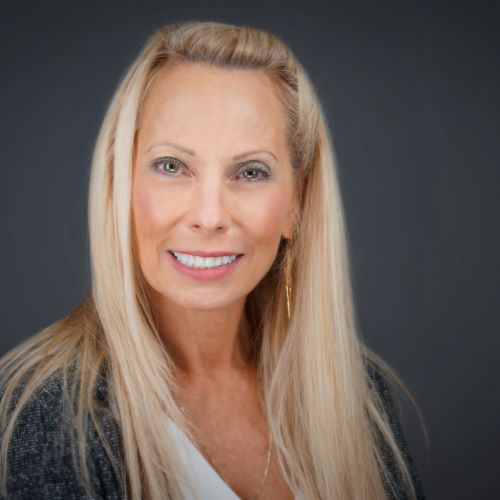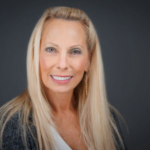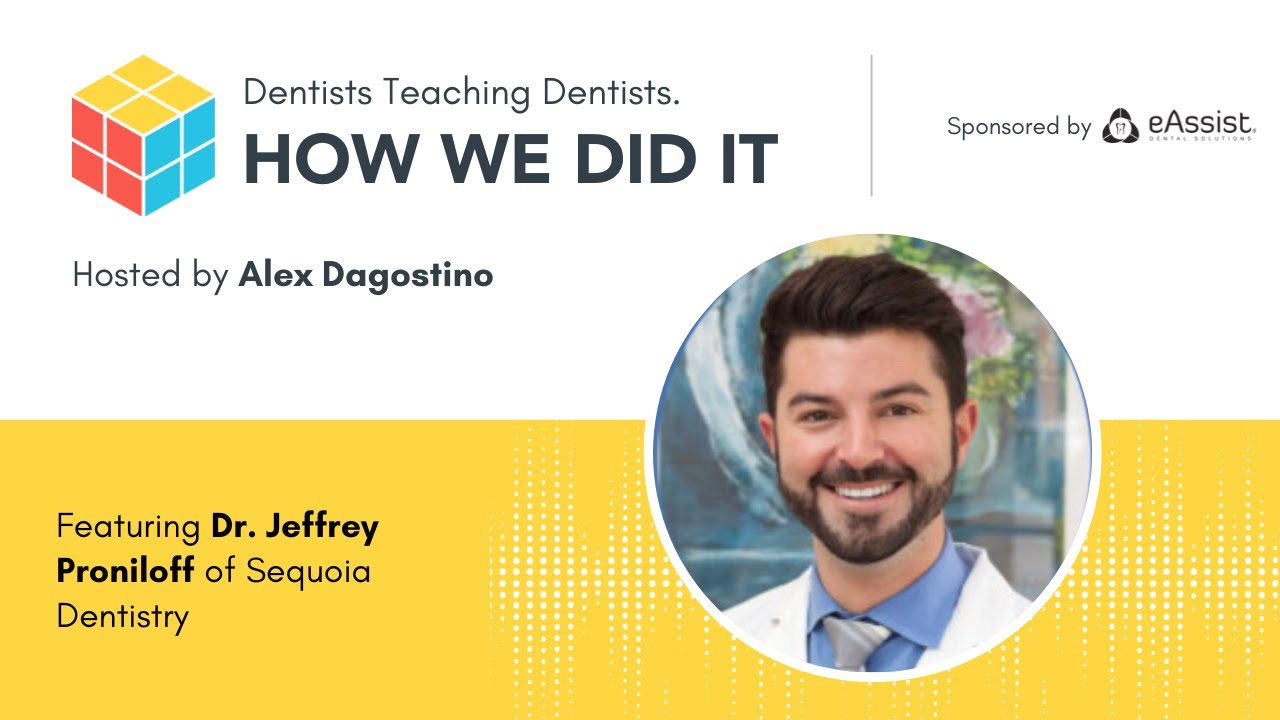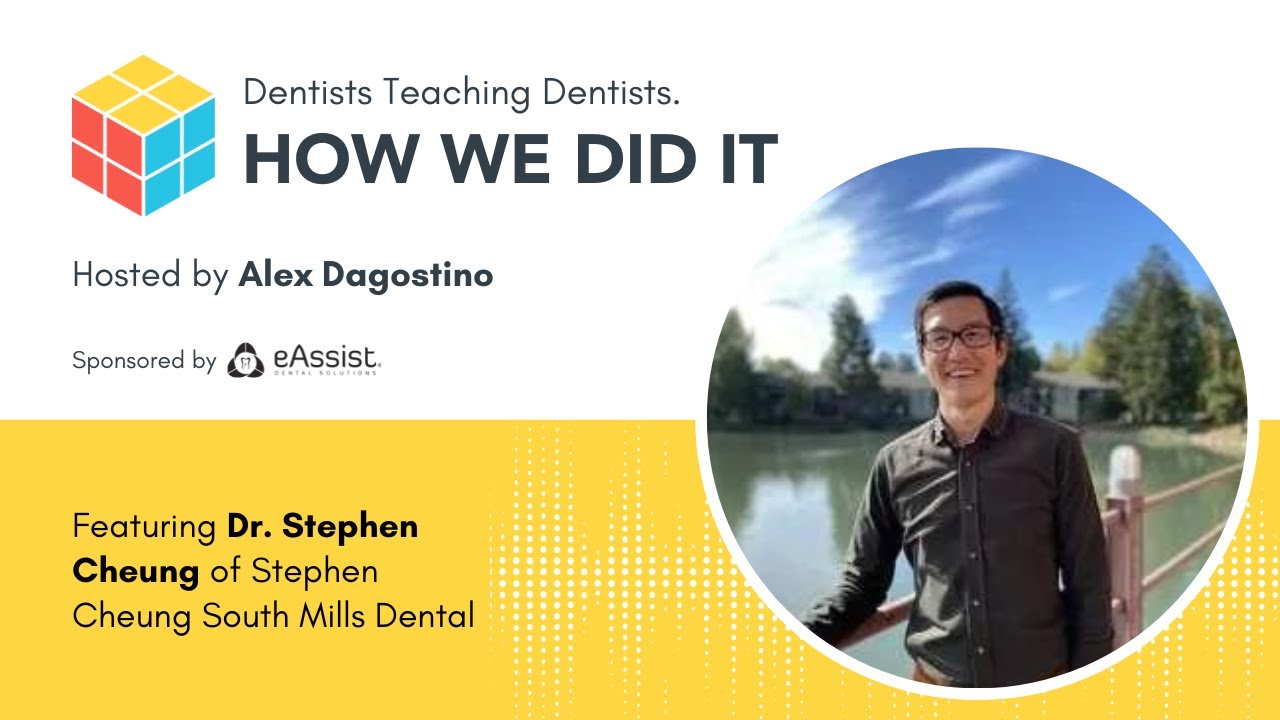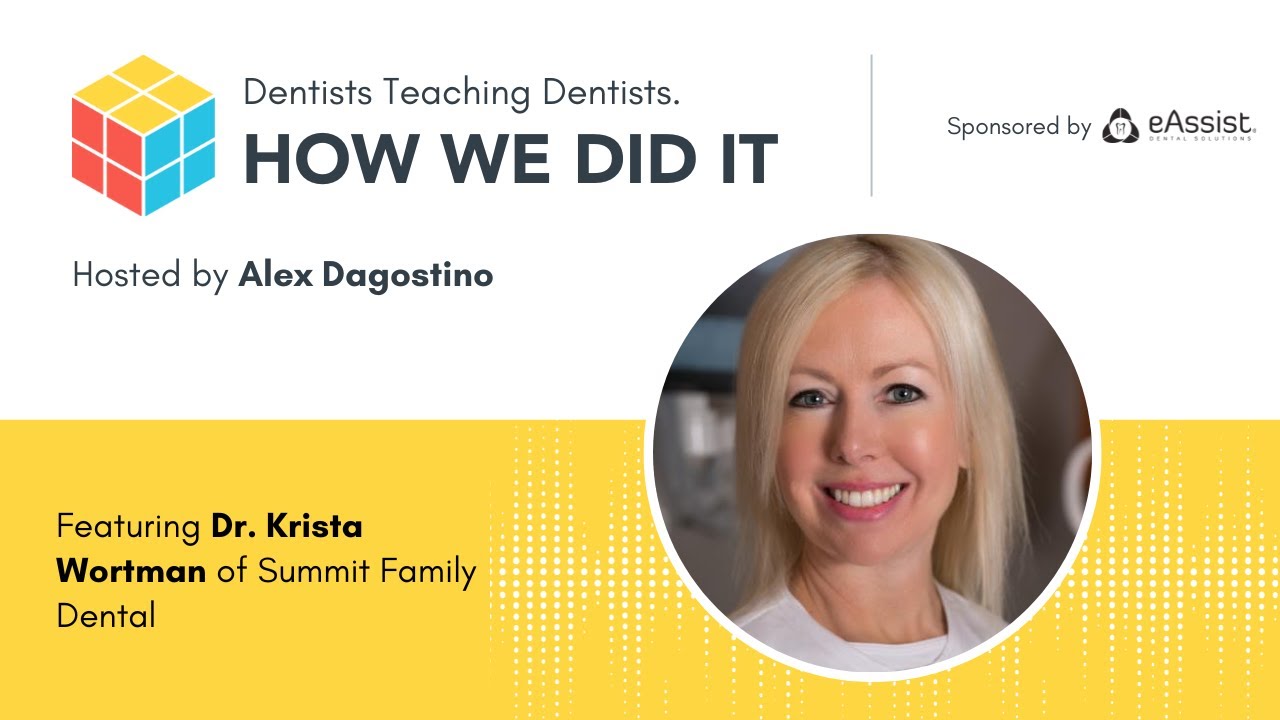Although ultimately a third-generation dentist, Dr. Ric Crowder’s journey to become one was anything but traditional. He had decided early on that he was not interested in going into the dentistry profession. In fact, his first career was as a practicing attorney, and many years later he continues to maintain his legal license.
Back then, Dr. Crowder and his wife – a board-certified veterinarian and veterinary dentist – would compare notes in the evenings about how their days had gone. Cleary his wife loved what she was doing, whereas Dr. Crowder not so much. Seemingly out of the blue, one day his dad – a highly successful orthodontist – asked his son if he had given any thought to going back to dental school.
Not thinking that his dad had any idea that he was struggling with what he wanted to do as a career, Dr. Crowder just laughed; after all, he was already 28 years of age, and had a two-year-old daughter and a son on the way in another month. He also expressed concern that he would be 32 by the time he graduated, and 34 if he specialized. Dr. Crowder will never forget his dad’s comment which caused him to change his career trajectory:
“My dad looked at me and with the greatest parental wisdom of all time, said, ‘Yeah, but you’ll be 34 anyway, whether you love what you do or hate it; so you might as well do what it takes to love what you do.” – Dr. Ric Crowder (and Dad)
As a result of working on many medical malpractice defense cases, Dr. Crowder came to realize he loved the medicine more than the malpractice legal aspects. So, in December of 2000 he gave notice at the law firm before even knowing if he had been accepted at Wichita State University. He needed to take numerous science classes (which his undergraduate degree in political science had not required), and even college algebra. Obviously he was accepted, and the family “uprooted everything” to relocate to Kansas City. He went on to earn his dental degree from University of Missouri – Kansas City School of Dentistry, opting not to specialize so he could graduate in 2006.
Dr. Crowder admitted that he was then in a hurry to get on with paying back the work he had put in, and the sacrifices his family had made. He was therefore not inclined to take the extra time to work his way through associateships. Instead, he established his own brand new practice in the Kansas City suburb of Lenexa where they lived, opening Crowder Family Dentistry in September of 2006.
He recalled, “On the second day, we had one patient. It was me, a dental assistant who had never worked in a dental office before, and a front desk person who had just graduated college and had also never worked in a dental office. We just kind of figured it out as we went along. I think we made $6,000 the first month.”
He also recalled being quite concerned over whether he would ever be able to break even, but can now proudly say – “So here we are 16 years later! In 2022 we finally broke a million dollars in production, had over $800,000 in collections, have several thousand patients, and three hygienists. It’s been a crazy journey and certainly not the normal one, but it’s been a lot of fun!”
Being a Dental Top Practice is an Individualized Definition
Dr. Crowder believes every practice owner must define for themselves what it means to be a Top Practice in dentistry. For some of his classmates and friends, that means running a multi-doctor, multi-office practice; joining or even starting their own DSO; or working only part time. Dr. Crowder personally has always valued his time more than his income, especially in the early years when it was important to him to be able to take time off to watch his kids’ sporting events, participate in their activities, and take long family weekends.
Being able to provide jobs for people has also always meant a great deal to him:
“I’ve always had at least one single mother as an employee; you feel the weight of responsibility as an employer, but also a lot of pride. Being able to hire more employees as I’ve grown is, for me, part of defining a successful practice.” – Dr. Crowder
He admits his own definition of Top Practice has changed somewhat over the years, especially now that his kids are mostly out of the house, and his oldest daughter – a soon-to-be fourth-generation dentistry professional – will be joining Crowder Family Dentistry.
In the earlier years, his wife’s successful business allowed Dr. Crowder to not have to study the hard metrics quite so much. But he admits “the numbers have become more important than they used to be. Now I’m looking at Top Practice more as producing, and growing the practice so a second doctor can afford to come in, and so we can continue to grow it together, while still serving people and maintaining the level of reviews that we’re getting.”
An essential piece of the growth plan for the practice is to move from the current 1100-square-foot rented facility, into the brand new building they hope to break ground on soon. The new office is planned as an impressive 6000-square-foot, main floor, 9-operatory, multi-doctor practice.
At times Dr. Crowder has wondered if he should have implemented some of these growth plans earlier, but he has always taken great pride in owning his own practice, and being able to develop it organically – “It’s grown as I’ve grown. As I got faster as a general dentist, the practice got faster. As I got more confident doing certain procedures, we started doing more procedures, placing implants, and offering more treatments. I like that it’s kind of grown organically.”
Another very personal element of being a Top Practice for Dr. Crowder is that he lives within walking distance of his office and knows the people in the community – “I consider mine a Top Practice because when I see people out in the community, on the walking trails, at church, in the grocery store… I can say, “Oh, she’s a patient… that guy’s a patient … their kids are patients….”
Differentiation Through Community Visibility and Involvement
Dr. Crowder believes most communities are blessed with an incredible group of dentists – “I’m so proud of our profession. And one of the things I love about it is that we still love it. Medical professionals and nurses talk about being burned out and tired, whereas dentists almost uniformly love what we do.”
He recounted the time he joked with an older dentist with a practice nearby to where he had just opened his, that he didn’t want her to think he was trying to compete with her: “She just laughed and said, ‘We’re not in competition with each other, we’re in competition with Chiefs season tickets and big screen TVs and all-inclusive vacations to Mexico!”
Dr. Crowder has taken that to heart over the years, appreciating that when it comes to the private practitioner, “We’re really all in this together; we’re all trying to protect dentistry as an oral health provider.” He sees that as corporate dentistry grows, private practice offices need to find ways to differentiate themselves from a corporate office.
For Dr. Crowder it comes down to being in a home town – “I’ve always wanted to be a small-town dentist in a big metropolitan area.” Upon opening the practice, Dr. Crowder’s marketing strategy was to flood the area with the name and brand logo. He selected insurance companies that were part of large provider networks for employers in the community. The practice sponsored sports teams, the high school band, and visited employers and health fairs. Over the last 10 years, he has spent almost nothing on marketing, rendered unnecessary due to word-of-mouth advertising and referrals throughout the community.
Crowder Family Dentistry is located in a suburb of Kansas City. Unlike his competitors who live in neighboring communities and drive in to see patients, Dr. Crowder lives a half mile from his current office, and will be even closer to their new building.
“One of the things that differentiates me from other dentists in my area is that I’m pretty sure I’m the only dentist who actually lives in the community. Patients know they’re going to see me around. They’ll stop me at church or in the store and ask questions about a sore tooth. I’ll say, ‘Come see me, let’s take a look at it, and talk about it.’ That’s probably how I’ve differentiated myself the most.” – Dr. Crowder
The Many Benefits of eAssist
When asked about Crowder Family Dentistry’s partnership with eAssist over the past several years, Dr. Crowder elaborated on the many benefits:
- A key front desk employee needed to cut back on hours in preparation for full retirement. He knew one of his long-time dental assistants would be excellent up front, but she lacked insurance-related experience; eAssist was brought on board to fulfill that critical role.
- For his practice, an advantage of a remote billing expert is that he has six employees in an 1100-square-foot office space – “We don’t have room to meet as a staff except to sit in the reception area, and even then, we have to roll in a chair.” He knew in order to continue growing, providing more services, and increasing profitability, he needed more physical plant, not more on-site employees.
- Albeit remote and not having ever met physically, Dr. Crowder does think of his eAssist team as employees. “My team members talk and chat with them every day, all day, and regularly hold Zoom meetings.
“eAssist is an extension of our staff, and have been able to take over so much of what the very experienced long-time front desk person had been doing. They made the transition seamless.”
– Dr. Crowder
- eAssist provides a “layer of protection” such that Dr. Crowder and the staff can be less emotionally involved when it comes to expecting patients to pay for their services. As he explained, “One of the downsides of being a local, small dental office is that patients find it too easy to ask, ‘Can you help me out?,’ or they want a discount, or to pay over time. Of course we always want to help people – that’s why we’re in this business. But as my business-owner wife has made it clear to me and my staff over the years, their job is to protect me from me. Their job is to collect money due because we’ve got to pay their salaries, and bring money home.”
Having eAssist handling the billing makes it a little easier for the staff to say to patients, “You know, the doctor provides a pretty amazing dental experience. He’s really really good at what he does, and his hygienists are incredible at what they do, and they deserve to get paid for what they’re doing.” While he advocates working with patients, he appreciates that eAssist brings more formal administration to the process of getting paid for services, but always in ways that reflect the values of Crowder Family Dentistry as a community practice.
- eAssist helps them keep overhead down, essential in today’s competitive dental industry. Dr. Crowder admitted, “As a single dental office, I can’t provide some of the economies of scale; I can’t compete with the DSOs or the very large practices that have full-blown billing departments and insurance filing departments. Post-pandemic especially, the insurance companies have gotten increasingly tight on what they’re paying for and what they’re asking us to provide in order to get paid. We can’t be a profitable business while competing with the free exams, free x-rays, $49 cleanings at corporate chains… unless we control our costs. So we have to find every avenue we can to keep our overhead as tight as it can be.” Consequently, Crowder Family Dentistry added Insurance Verification to its eAssist services shortly after beginning with dental billing.
“The staff would revolt if I ever took Insurance Verification away from eAssist and put it back onto the front desk, based on past experiences with angry patients surprised by unexpected payments due. Being accurately informed about what is covered for a patient, and when, helps with patient compliance, and keeping them in the loop and in the system.” – Dr. Crowder
Advice to Graduates and Young Dentists
- Stay true to yourself. “Be honest with who you are, and make sure you’re in an environment that lets you do that – whether as a general dentist or a specialist, within a corporate dental office, a DSO, a multi-doctor private practice, or a family practice.” He said he witnesses too many young dentists become jaded, discouraged or burned out because they veer off a path that feels right to them, or join a practice that doesn’t match who they are.
“Maybe to you, that means working as much as you can work right now, while you’re still young and have no kids. So do that, but recognize there will come a time when you can’t do that anymore; it’s exhausting. On the other hand, maybe you know you need more time for yourself – for your own mental, spiritual, and physical health. So decide what hours you want to work and what services you want to provide, and do that.”
- Continue doing the research. “Even if you shadowed earlier on because it was required, get out and do it again. Now that you’ve been in dental school a couple of years and you’re not looking so much at the procedures being done, look at the environment of the office; look at the physical layout and think about what you do and don’t like about it. Do you need lots of people around you to keep your energy level up? Or, do you prefer to get people out quickly, in which case a smaller office may be all you need. Do you want to be in an office where you’re doing the simple restorative procedures, while the older owner doctor handles the bigger cases? How would a potential buyout work? All of these things factor in.”
- If you already own a practice, try not to hold too tightly to anything. Learn from others’ successes and mistakes, and be open to suggestions and new ideas. “Accept that there’s nothing you’re doing so well that you couldn’t be doing it better.”
- Always be changing, always growing, always learning. “After you’ve been in it for 10 years, find something new within dentistry that inspires and reinvigorates you.”
“If you’re not having fun, figure out what would be fun for you, and do that. Because if you don’t love what you do – something that adds value to your life and the life of your family – it doesn’t matter how much money you make; it’s not worth it.” – Dr. Crowder
